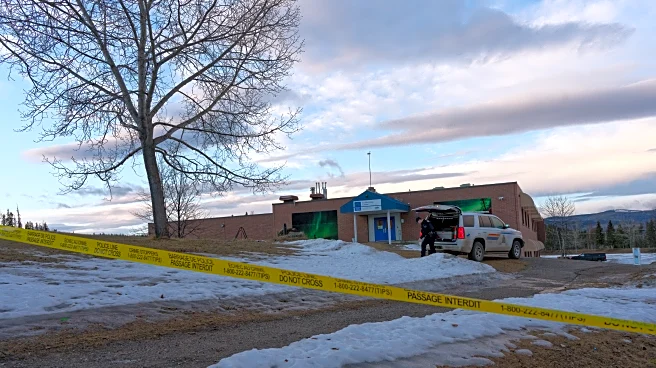What's Happening?
The ongoing government shutdown, which began on October 1, 2025, is significantly affecting U.S. farmers who rely on contracts with the U.S. Department of Agriculture (USDA). Federal offices remain closed, and most government employees are furloughed,
preventing farmers from accessing necessary grants and support. This situation is compounded by the impact of tariffs, which have led to a decrease in soybean prices due to China's cessation of purchases in response to high U.S. tariffs. Although China has agreed to resume buying U.S. soybeans, input costs remain high due to retaliatory tariffs from countries like Canada. High interest rates on loans further exacerbate the financial strain on farmers, potentially leading to increased debt. The combination of these factors creates a challenging environment for American farmers, particularly small and mid-size producers.
Why It's Important?
The financial instability caused by the government shutdown and trade wars poses a significant threat to the U.S. agricultural sector. Farmers face rising costs and diminishing commodity prices, which could lead to increased debt and financial hardship. The situation is particularly concerning for younger farmers who are trying to establish themselves in the industry. The Biden administration's efforts to improve conditions through increased USDA staffing and conservation funding have been halted or reversed, leaving farmers without essential support. This could lead to long-term negative impacts on rural communities and the agricultural industry as a whole, potentially reducing the viability of farming for small and mid-size producers.
What's Next?
If the government shutdown continues, farmers may face further delays in receiving USDA payments, exacerbating their financial difficulties. The agricultural sector may see increased advocacy for policy changes to address the challenges posed by tariffs and government closures. Stakeholders, including policy specialists and agricultural coalitions, may push for renewed conservation funding and support to help farmers become more self-reliant and reduce reliance on costly inputs. The situation calls for urgent attention from political leaders to ensure the sustainability of the U.S. agricultural industry.
Beyond the Headlines
The current challenges faced by farmers highlight broader issues within the U.S. agricultural policy framework. The reversal of conservation funding and mass layoffs at USDA offices underscore the need for a more stable and supportive environment for farmers. Ethical considerations arise regarding the government's responsibility to provide necessary tools and services to producers, ensuring their ability to thrive despite external economic pressures. Long-term shifts in agricultural practices may be necessary to adapt to changing economic and political landscapes.

















